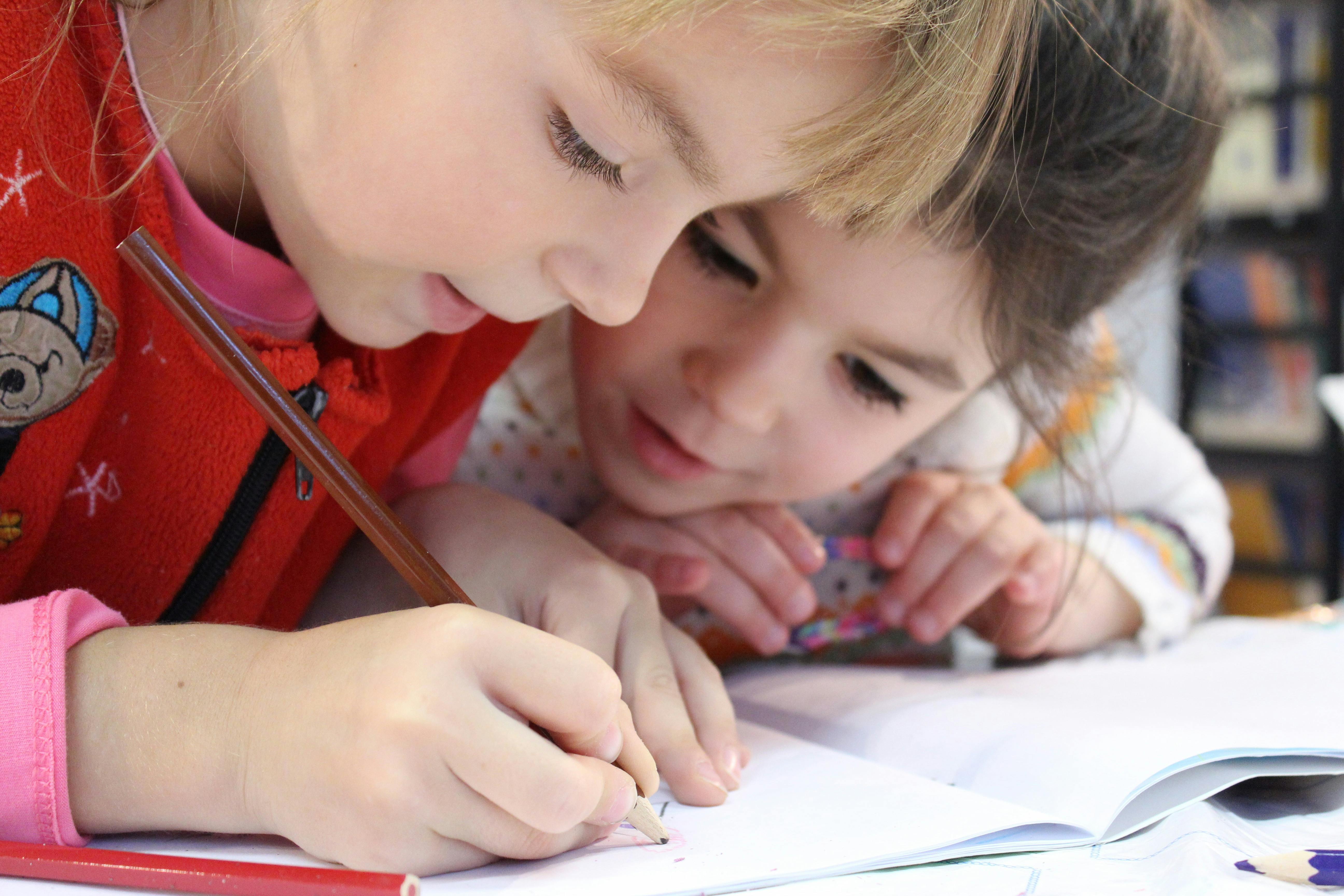What Parenting Styles Work Best for Toddlers? Nurturing Development Through Connection and Stories
What Parenting Styles Work Best for Toddlers?

Parenting a toddler feels like navigating a fascinating yet unpredictable adventure. One moment they're your cuddly baby, the next they're asserting their independence with a determined "No!" that echoes through the house. Between tantrums, boundless curiosity, and rapid developmental leaps, you might wonder: What parenting approach actually works best during these critical early years?
The toddler stage (generally 1-3 years) represents one of the most crucial periods for brain development. Research shows that parenting styles during these years significantly impact emotional intelligence, social skills, cognitive abilities, and future mental health. While every child is unique, developmental psychology reveals clear patterns about which parenting approaches yield the healthiest outcomes.
Interestingly, one of the most powerful tools in your parenting toolkit might surprise you: children stories. From bedtime stories to picture books, storytelling offers a magical pathway to teach values, process emotions, and strengthen your bond. We'll explore how different parenting styles incorporate (or overlook) this vital resource.
Understanding Toddler Development: The Foundation for Effective Parenting

The Science Behind Toddler Behavior
To parent effectively, we must first understand what's happening beneath the surface. Toddlers experience monumental developmental changes:
- Brain Development: The prefrontal cortex (responsible for impulse control and decision-making) remains immature, while emotional centers are highly active. This neurological imbalance explains their emotional volatility.
- Cognitive Leaps: They develop object permanence, understand cause-and-effect, and begin symbolic thinking – making picture books and interactive stories increasingly meaningful.
- Language Explosion: Vocabulary expands from about 20 words at 18 months to 200+ by age 2. Nursery rhymes and repetitive kids stories fuel this growth.
- Social-Emotional Milestones: They develop self-awareness ("mine!"), experience complex emotions like embarrassment and pride, but lack skills to regulate these feelings.
These developmental realities explain why toddlers test boundaries, have emotional meltdowns, and engage in seemingly irrational behaviors. Effective parenting styles work with rather than against these developmental processes.
Why Parenting Style Matters More Than Individual Decisions
Psychologist Diana Baumrind's pioneering research identified four parenting styles based on two dimensions: responsiveness (warmth/support) and demandingness (control/expectations). Later research by Maccoby and Martin added a fourth style. These styles create emotional climates that profoundly influence development:
"The parenting style establishes the emotional context for all parent-child interactions. It's not about perfect decisions but consistent patterns of warmth, communication, and appropriate boundaries that help toddlers feel secure while learning about their world."
— Dr. Sarah Thompson, Developmental Psychologist
The Four Parenting Styles: Which Works Best for Toddlers?

1. Authoritative Parenting: The Balanced Approach
High Warmth + High Structure - Authoritative parents provide abundant emotional support while maintaining appropriate boundaries. They're responsive to their child's needs while consistently enforcing rules.
Key Characteristics:
- Set clear, age-appropriate expectations ("We hold hands in parking lots")
- Explain reasons behind rules in simple terms
- Validate emotions while guiding behavior ("I see you're angry. Hitting hurts. Let's use words")
- Encourage independence within safe limits
- Use natural consequences and positive discipline
Impact on Toddlers: Decades of research consistently show authoritative parenting yields the best outcomes. Toddlers raised this way typically develop:
- Stronger emotional regulation skills
- Higher self-esteem and confidence
- Better social competence with peers
- More advanced language and problem-solving abilities
- Increased cooperation and compliance
2. Authoritarian Parenting: The Strict Approach
Low Warmth + High Control - Authoritarian parents prioritize obedience and control, often enforcing rigid rules with punishment. Emotional warmth and open communication are minimal.
Key Characteristics:
- Emphasis on obedience without explanation ("Because I said so!")
- Frequent use of punishments and threats
- Discouragement of questioning or negotiation
- Limited emotional responsiveness
Impact on Toddlers: While these children may comply out of fear, research reveals negative outcomes:
- Higher anxiety and stress levels
- Poorer emotional regulation skills
- Lower self-esteem and social competence
- Increased aggression or withdrawn behavior
- Reduced creativity and initiative
3. Permissive Parenting: The Indulgent Approach
High Warmth + Low Structure - Permissive parents are highly affectionate but set few boundaries. They avoid confrontation and rarely enforce consistent rules.
Key Characteristics:
- Few demands or behavioral expectations
- Rare use of consequences for misbehavior
- Child-led decision making, even when inappropriate
- High levels of warmth and affection
Impact on Toddlers: Despite the abundant love, lack of structure creates challenges:
- Difficulty with rules and limits in other settings (daycare, preschool)
- Poor impulse control and frustration tolerance
- Increased demandingness and entitlement behaviors
- Anxiety from lack of predictable boundaries
- Underdeveloped problem-solving skills
4. Uninvolved Parenting: The Neglectful Approach
Low Warmth + Low Structure - Uninvolved parents provide minimal emotional support and little guidance. Basic needs may be met, but emotional engagement is lacking.
Key Characteristics:
- Limited emotional responsiveness
- Few expectations or boundaries
- Minimal supervision or engagement
- Prioritization of parent's needs over child's
Impact on Toddlers: This style has the most damaging outcomes:
- Significant attachment issues and insecurity
- Cognitive and language delays
- Poor social skills and emotional regulation
- Increased behavioral problems
- Higher risk of neglect and abuse

Why Authoritative Parenting Works Best: The Evidence
Over 50 years of developmental research consistently demonstrates that authoritative parenting helps toddlers thrive. A landmark 2022 meta-analysis published in Developmental Psychology reviewed 164 studies involving over 200,000 children and found:
- 34% higher likelihood of secure attachment compared to authoritarian parenting
- 28% better emotional regulation skills than permissive parenting
- 42% fewer behavioral problems than uninvolved parenting
- 23% greater language development at age 3 compared to other styles
The magic lies in the balance. Authoritative parenting provides the security of predictable boundaries while offering the emotional support necessary for exploration. This combination activates healthy stress response systems and builds neural pathways for self-regulation.
The Storytelling Advantage in Authoritative Parenting
Authoritative parents naturally leverage storytelling as a powerful tool. They intuitively understand that kids stories and bedtime stories aren't just entertainment but emotional scaffolding:

How authoritative parents use stories:
- Teaching Values: Moral stories and fables gently introduce sharing, kindness, and honesty
- Processing Emotions: Picture books about anger or fear help toddlers name feelings
- Establishing Routines: Bedtime stories create comforting transitions
- Building Connection: Snuggling with toddler stories strengthens attachment
- Developing Empathy: Animal stories and heartwarming tales teach perspective-taking
Practical Authoritative Parenting Strategies for Toddlers
Emotion Coaching: The Heart of Connection
Toddlers experience emotions intensely but lack words to express them. Emotion coaching transforms tantrums into teaching moments:
The 4-Step Emotion Coaching Process:
- Notice the emotion ("Your face looks angry/sad/frustrated")
- Name and validate ("It's okay to feel mad when we leave the park")
- Set limits if needed ("Hitting isn't okay. Let's stomp feet instead")
- Problem-solve together ("Next time, we'll set a timer before leaving")
Reinforce these lessons through educational stories like The Color Monster (about identifying emotions) or When Sophie Gets Angry (about calming techniques).
Positive Discipline That Actually Works
Authoritative discipline focuses on teaching rather than punishing. Effective strategies include:
- Redirection: Shift attention to acceptable activities ("Markers are for paper. Here's your chalkboard!")
- Natural Consequences: Allow learning from experience (refusing coat → feels cold)
- Choices Within Limits: Empower autonomy ("Do you want apples or bananas?")
- Positive Reinforcement: Notice desired behavior ("You shared blocks! That made Sam happy")
- Time-Ins: Stay close during meltdowns to co-regulate emotions

Rituals and Routines Anchored in Storytelling
Toddlers thrive on predictability. Weave storytelling into daily transitions:
- Morning: Create a "Good Morning" song or rhyme routine
- Mealtimes: Tell simple interactive stories about food ("The brave carrot who journeyed to Soup Land")
- Cleanup: Invent a fantasy story where toys magically return home
- Bedtime: Establish a sacred storytime ritual with magical stories
The Transformative Power of Stories in Toddler Development
Beyond being delightful bonding experiences, high-quality children stories serve as critical developmental tools:

Why Stories Resonate with the Toddler Brain
Neurological research reveals why storytelling is uniquely powerful:
- Mirror Neurons: When toddlers hear stories, their brains activate as if experiencing events firsthand
- Pattern Recognition: Repetitive nursery rhymes and classic tales build prediction skills
- Language Networks: Exposure to rich vocabulary through picture books grows neural pathways
- Emotional Rehearsal: Adventure stories let toddlers practice coping with fear safely
Choosing the Right Stories for Developmental Stages
Match books to your toddler's evolving abilities:
12-18 months:
- Board books with photos of familiar objects
- Simple nursery rhymes with actions (Pat-a-Cake)
- Books with textures to touch
18-24 months:
- Stories with simple plots and repetition (Brown Bear, Brown Bear)
- Books about daily routines (bedtime, meals)
- Animal stories with sounds
2-3 years:
- Slightly complex preschool stories (The Very Hungry Caterpillar)
- Moral stories about sharing/kindness
- Interactive stories with lift-flaps or choices
- Early reader books with rhyming patterns
Common Parenting Challenges: Story-Based Solutions

1. Tantrums and Big Emotions
Authoritative Response: Stay calm, validate feelings, ensure safety. After calming, read toddler stories about emotions like Llama Llama Mad at Mama or Anh's Anger. Discuss parallels to their experience.
2. Bedtime Resistance
Authoritative Response: Create a predictable 30-minute routine ending with bedtime stories. Use magical stories about sleep like The Rabbit Who Wants to Fall Asleep. Offer limited choices ("Which pajamas? Which book?")
3. Sharing Struggles
Authoritative Response: Avoid forced sharing. Model turn-taking. Read moral stories like Should I Share My Ice Cream? or Share, Big Bear, Share! Praise small sharing moments specifically.
4. Aggression (Hitting/Biting)
Authoritative Response: Immediately stop behavior ("I won't let you hit"). Offer alternatives ("Show me gentle hands"). Later, read educational stories like Hands Are Not for Hitting or Teeth Are Not for Biting.
Conclusion: Raising Emotionally Intelligent Storytellers

The toddler years present extraordinary challenges and opportunities. By embracing authoritative parenting—balancing warm responsiveness with appropriate structure—you create the optimal environment for your child's development. Remember that perfection isn't the goal; consistent connection is.
Storytelling serves as your secret weapon in this journey. Through bedtime stories, fairy tales, and heartwarming tales, you build language skills, emotional intelligence, and values while strengthening your bond. The stories you share today become the inner voice that guides them tomorrow.
As you navigate tantrums, milestones, and daily adventures, keep returning to connection. When you're exhausted, simplify. When you're frustrated, breathe. When you're joyful, savor. You're not just managing behaviors—you're nurturing a human being whose earliest experiences shape their worldview. The loving presence you offer through both challenges and storytime cuddles is the greatest gift of all.
Transform Bedtime Battles into Magical Moments
Discover our collection of enchanting, emotionally intelligent stories designed specifically for toddlers. Each beautifully illustrated book makes teaching empathy, kindness, and emotional skills joyful.
Explore Our Magical Story CollectionUse code PARENT20 for 20% off your first order!